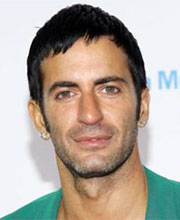 As one might assume, I receive quite a few emails each and every day from prospective patients both through my NHI site and this blog. It seems that everyone knows the Norwood patterns of hair loss (that’s a good thing), so these emails fundamentally focus upon identifying where the person believes his hair loss is on this chart and asking how much it would cost to get a hair transplant.
As one might assume, I receive quite a few emails each and every day from prospective patients both through my NHI site and this blog. It seems that everyone knows the Norwood patterns of hair loss (that’s a good thing), so these emails fundamentally focus upon identifying where the person believes his hair loss is on this chart and asking how much it would cost to get a hair transplant.
For example, Joe Doe says he is a Norwood Class 3 and asks if I can tell him how much a transplant would cost to give him back his hair. Wouldn’t it be nice to be able to have a formulae that determines the costs of a Norwood Class 3, 4, 5, 6 and 7 pattern of hair loss? Like five price categories that fit all needs, or like a compact car to a full size car that you might rent from AVIS. These naive men, unfortunately, do not understand that the variables in determining costs reflect the weight/thickness of the hair shafts (finer haired men will frequently take more surgeries to accomplish the same goals as a coarse haired person), the character of the hair (the curly haired man will take less hair transplants to cover his balding area than the straight haired man), the contrast in color between the scalp and hair (the blond haired man with white skin will require less transplants than a black haired, white skinned person), the density of the donor hair, and the available supply of donor hair that meets the needs of the various classes of hair loss. Do all Class 3 patients have the same need? Of course not! Some can get their hair back in one surgery while others may take two or more procedures to achieve their goals.
Unfortunately, the hair transplant industry seems to have gone into commodity pricing and at least in the pricing process, the prospective buyers are demanding that the doctors’ bid on the cost of the surgeries, the costs of the grafts, or even the cost of each transplanted hair that the doctor will move around. Does commodity pricing really give the buyer something of value to compare what they are going to get?
 I have said here before that buying a hair transplant is not like buying a car. A BMW or a Chevy is a BMW or a Chevy in any dealership that you would go to, because the cars have consistent quality from one dealer to the next. Manufacturing is done off-site in Detroit or in Japan or Korea, so one model in any one brand is identical to the other. In hair transplantation surgery, this is not the case. A certain number of grafts for a specific balding pattern will not give you the same results between doctors, because of the art and the experience in doing these surgeries. I have seen more hair transplant failures recently coming into my office than I can remember. What problems I saw 15 years ago were often mutilations caused by poor techniques, plugs, and/or inappropriate surgeries like scalp reductions. Today things have gotten better with far fewer mutilations, because almost every doctor seems to be “pitching” the same surgery, the follicular unit transplant technique published by us.
I have said here before that buying a hair transplant is not like buying a car. A BMW or a Chevy is a BMW or a Chevy in any dealership that you would go to, because the cars have consistent quality from one dealer to the next. Manufacturing is done off-site in Detroit or in Japan or Korea, so one model in any one brand is identical to the other. In hair transplantation surgery, this is not the case. A certain number of grafts for a specific balding pattern will not give you the same results between doctors, because of the art and the experience in doing these surgeries. I have seen more hair transplant failures recently coming into my office than I can remember. What problems I saw 15 years ago were often mutilations caused by poor techniques, plugs, and/or inappropriate surgeries like scalp reductions. Today things have gotten better with far fewer mutilations, because almost every doctor seems to be “pitching” the same surgery, the follicular unit transplant technique published by us.
What I see today is failure upon failure of (1) the hair transplants to grow, (2) less than ideal results, (3) transplants that reflect upon the doctor’s ability to milk the patient with too many grafts (or hairs), and (4) terrible scars from poor judgments and/or techniques. I know of many complicated problems, even one death, one stroke from a surgeon’s lack of skills, and at least one heart attack. Some of the doctors who see easy money in selling hair transplants can get away with terrible results, because it takes 8 months for the hair to grow and the payment for the service has already cleared his/her bank account by that time. Far too many doctors are getting away with poor outcomes due to the 8 month surgical lag, which is a long time for the patient who waited patiently for the hair that might never grow, to grow. Men seem to avoid confrontation with their hair surgeons so that the doctors seem to get away with ripping off their patients far too often. As the fees have been pushed lower and lower, the surgeons have had difficulty paying for quality staff and many of the poor results reflect that the fees that the surgeons collect have limited their ability to retain experienced technicians.
 I write articles like this often to be responsible and responsive to the needs of the patients in this hair transplant process. You can read some of the past articles here, here, and here. I am sure that I make very few friends amongst the doctors who engage in performing and delivering 3rd class hair transplants. I preach over and over again to “let the buyer beware“… but beware of what? The answer runs the gamut from poor outcomes, complications with the hair transplant itself, stroke and heart attacks from an inability to command the hair transplant and anesthesia process, and even death.
I write articles like this often to be responsible and responsive to the needs of the patients in this hair transplant process. You can read some of the past articles here, here, and here. I am sure that I make very few friends amongst the doctors who engage in performing and delivering 3rd class hair transplants. I preach over and over again to “let the buyer beware“… but beware of what? The answer runs the gamut from poor outcomes, complications with the hair transplant itself, stroke and heart attacks from an inability to command the hair transplant and anesthesia process, and even death.
Please, if you are doing your homework in the hair transplant process, meet patients who have had the work done and do not depend solely upon photos, which may not even reflect the work of the doctor who shows you the photos. Check with the medical boards of the state where the services are being performed or with the chamber of commerce and the courts where the skeletons may lie deep in their closets, possibly hidden in their archives. The information is on the web for those who want to avoid the traps.

 You shouldn’t treat yourself without knowing what you have. You need a diagnosis before jumping to conclusions. So far you blamed lice and dust mites without knowing for sure — what’s next? At the least, you must keep a very clean environment where you live and wash your linens often. Perhaps you need to see a good doctor for a diagnosis, as a doctor will be able to find the mites or lice that you think you have.
You shouldn’t treat yourself without knowing what you have. You need a diagnosis before jumping to conclusions. So far you blamed lice and dust mites without knowing for sure — what’s next? At the least, you must keep a very clean environment where you live and wash your linens often. Perhaps you need to see a good doctor for a diagnosis, as a doctor will be able to find the mites or lice that you think you have.

 Balancing medications for bipolar conditions can be difficult. This would take priority over the hair loss issues, but your doctor may be able to substitute one med for another if they may feel a particular medication is causing your hair loss.
Balancing medications for bipolar conditions can be difficult. This would take priority over the hair loss issues, but your doctor may be able to substitute one med for another if they may feel a particular medication is causing your hair loss.  As one might assume, I receive quite a few emails each and every day from prospective patients both through my
As one might assume, I receive quite a few emails each and every day from prospective patients both through my  I have said here before that buying a hair transplant is not like buying a car. A BMW or a Chevy is a BMW or a Chevy in any dealership that you would go to, because the cars have consistent quality from one dealer to the next. Manufacturing is done off-site in Detroit or in Japan or Korea, so one model in any one brand is identical to the other. In hair transplantation surgery, this is not the case. A certain number of grafts for a specific balding pattern will not give you the same results between doctors, because of the art and the experience in doing these surgeries. I have seen more hair transplant failures recently coming into my office than I can remember. What problems I saw 15 years ago were often mutilations caused by poor techniques, plugs, and/or inappropriate surgeries like scalp reductions. Today things have gotten better with far fewer mutilations, because almost every doctor seems to be “pitching” the same surgery, the follicular unit transplant technique published by us.
I have said here before that buying a hair transplant is not like buying a car. A BMW or a Chevy is a BMW or a Chevy in any dealership that you would go to, because the cars have consistent quality from one dealer to the next. Manufacturing is done off-site in Detroit or in Japan or Korea, so one model in any one brand is identical to the other. In hair transplantation surgery, this is not the case. A certain number of grafts for a specific balding pattern will not give you the same results between doctors, because of the art and the experience in doing these surgeries. I have seen more hair transplant failures recently coming into my office than I can remember. What problems I saw 15 years ago were often mutilations caused by poor techniques, plugs, and/or inappropriate surgeries like scalp reductions. Today things have gotten better with far fewer mutilations, because almost every doctor seems to be “pitching” the same surgery, the follicular unit transplant technique published by us. I write articles like this often to be responsible and responsive to the needs of the patients in this hair transplant process. You can read some of the past articles
I write articles like this often to be responsible and responsive to the needs of the patients in this hair transplant process. You can read some of the past articles  As long as you know what you want and have realistic expectations, there is no problem with having a juvenile hairline. The doctor should do their best to understand that you will not have further balding (remember, your donor hair is limited) and you would be willing to accept the Bill Clinton or Ronald Reagan look.
As long as you know what you want and have realistic expectations, there is no problem with having a juvenile hairline. The doctor should do their best to understand that you will not have further balding (remember, your donor hair is limited) and you would be willing to accept the Bill Clinton or Ronald Reagan look. There is some level of pain involved, as let’s not fool ourselves into thinking this isn’t a surgical procedure we’re talking about. That being said, everyone will have a different idea of what is painful and what is just annoying. I’ve previously written about what pain patients can expect from a hair transplant —
There is some level of pain involved, as let’s not fool ourselves into thinking this isn’t a surgical procedure we’re talking about. That being said, everyone will have a different idea of what is painful and what is just annoying. I’ve previously written about what pain patients can expect from a hair transplant —